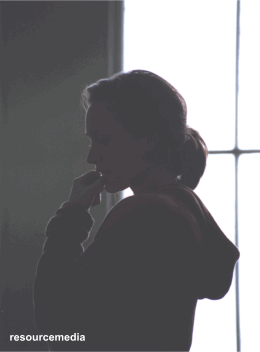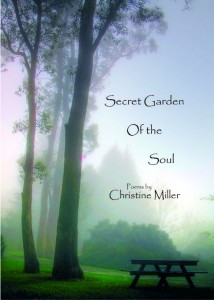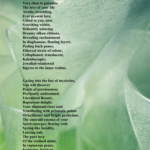A friend, Wealth Coach Nicola Cairncross, posted on Twitter yesterday that she wanted to talk to someone about the experience of living with and bringing up young teens, which prompted me to revisit this short article I wrote almost five years ago. It seems to be a time when this aspect of my work with children and young people is in the spotlight, I was interviewed as an expert for a book on coaching the other week – is somebody trying to tell me something?
Resourceful Little Treasures
In my role as a coach, mentor and counsellor I work mainly with young people, many of whom come to me labelled with behavioural, learning and/or emotional difficulties. That means I’m quite accustomed to witnessing sulky, aggressive and unhappy children, and it can take a fair amount of time, compassion and humour to unwind and relax and begin to make progress together.
So when my own 16 year old son informed me with some passion the other week that I “have no idea how hard it is to be a child growing up these days” it took me by surprise and prompted me to reflect carefully on my family, my work and my self.
He’s usually thought of as the wise one in his group, he appears to cope with whatever life presents to him, and he does fine at school. Yet even he is saying that coping is hard.
And it’s in such moments that we can, as parents, gain great insights into just what the challenges of adolescence are these days that might make it harder than it was for us. However, it’s tricky, because any questioning or request for explanation can lead to stonewalling silence – and so how can we mine for those precious nuggets that help us respond appropriately to our little treasures and not dam up the flow before it’s even started? (Apologies for the mixed metaphor…)
Because if it’s hard work being a child these days, it’s probably even harder being a parent who cares, who wants to be supportive yet finds that they are sidelined and that attempts at dialogue are blocked.
You’d think with my experience and skills with other people’s little treasures, it would be a breeze, but dealing with your own kids isn’t the same as being the outside help. After all, you can’t send them home after an hour or so – they are at home. You don’t have the benefit of an outside perspective. Well, that was what I thought until I began to reflect on the limitations I was imposing by holding those beliefs.
I wondered: if I could change my beliefs about it being hard to work with my son, could he shift his beliefs that it’s hard to be an adolescent growing up today?
And this is what happened.
I worked out a way of inviting my son to use a simple strategy of stepping back and stepping out.
I explained to him that I had been experiencing a paradox of finding it hard to be a parent. Feeling uncomfortable offering to help him because he’s my son, and even more uncomfortable not helping him – also because he’s my son, and especially as I have such a wide range of skills that could benefit him. So I went back in time to occasions when it would have seemed impossible and neglectful not to pass on skills and knowledge to him.
Like, what if I’d never talked to him so he could learn from me?
Or taught him to feed and dress himself?
Or helped him to read?
Or helped him to learn to ride his bike?
How weird would that have been?
And in the future, when he learns to drive (Oh, Yes! This Year! as he gleefully reminded me) he’ll accept that know-how from his dad and me.
We ended up laughing at the craziest imaginary scenarios of me being reluctant to be a parent to him, because I knew more than he did.
This opened up a really useful dialogue for us about eking out degrees of responsibility as children approach adulthood, but still being there. And on we went to his scenarios…
He stepped back and found times when it had been enormous fun to be growing up and developing, learning and exploring his expanding world, and rediscovered a sense of joy. He noticed that there was usually someone else involved with passing on skills and knowledge, but that when he was competent he went off and did his own thing. He discovered that he had lots of resources from the past which he could bring forward into the present, and would transfer to the future.
And he recognised that accepting help and support were a way of getting stronger and growing more resourceful – real, lasting treasures to carry forward to a life where it may just be a little easier to be growing up, in that limbo where you’re neither child nor adult. And as for me, I’ve found a more comfortable and fulfilling place in his world where I can support him by balancing the roles of adult and parent – still keeping mum, but now able to speak up as well!!
© Christine Miller




